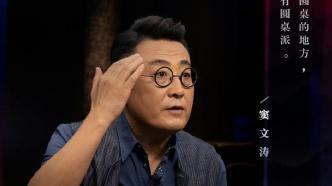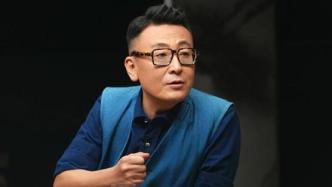
The Round Table, which premiered in 2016, recently launched the Round Table 7. From the first season in 2016 to the present, the show has almost maintained the rhythm of launching one season per year (except for 2020 and 2023).
The "Round Table" series has always had a good reputation, with Douban ratings of around 9 points for each season. However, many fans are still worried: Will this season be the last? After all, the current variety show market needs traffic, gimmicks and topics, and the "Round Table" pure chat show can be said to have "three nothings", and is still a bit niche overall.
Fortunately, although it will be absent in 2023, "Round Table 7" will return in the summer of 2024, and the audience can watch as many seasons as possible.
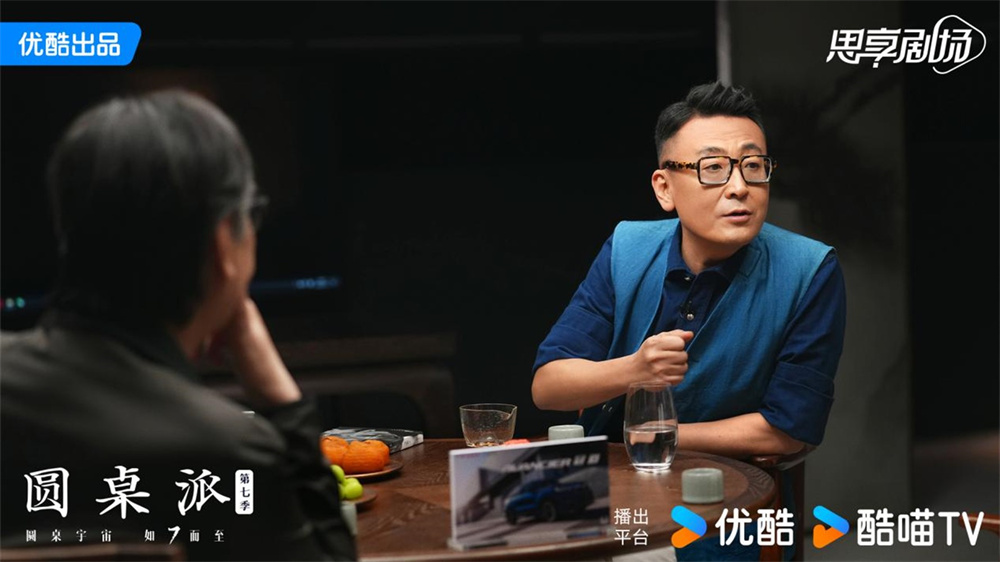
Dou Wentao, host of "Round Table"
"Round Table" is a talk show. Talk shows are centered on conversations, where the host and guests or audience discuss specific topics and share their views with each other.
Broadly speaking, talk shows come in many forms. News and current affairs talk shows, where the host discusses hot news topics with guests or audience members; interview shows, where celebrities and artists are the protagonists, focus on excavating individual stories and presenting personal perspectives; and debate shows and talk shows, which have gradually become independent categories, also fall under the broad category of talk shows.
"Round Table" is one of the few cultural talk shows on the market. There are four hosts and guests, with diverse occupations, interests and values; the program covers a wide range of topics, including social hot spots, cultural phenomena, daily life, astronomy and geography; each episode has a theme, but there is no strict debate framework or pros and cons, but a relaxed and casual chat, focusing on the exchange of views and the collision of ideas, without direct competition or the concept of winning or losing...
In the current variety show market which is dominated by entertainment and fast-paced, on the one hand, we need programs that discuss social and cultural issues in depth and are informative and ideological, so as to enrich the ecology of variety shows and meet the audience's demand for high-quality content and intellectual exchanges.
On the other hand, this type of program is not easy to make. Some programs are either lacking in professionalism, or too focused on imparting information, turning the program into a one-dimensional knowledge lecture that inevitably appears boring and preachy.
The reason why "Round Table" has been able to survive until its seventh season is that it has found a good balance: it is both informative and cultural, and also has an innovative program format, appropriate guest selection, vivid situation settings, timely humor, and an open and inclusive atmosphere, successfully building a variety show environment that can both deliver value and attract audiences.
In summary, "Round Table" has "three characteristics": casualness, knowledge and openness.
"casual"
In the past, television talk shows had a certain inherent pattern. The hosts sat upright, looked serious and reserved, which seemed very formal and made the audience feel distant.
"Round Table" can be understood as "Dou Wentao and his friends". In each episode, Dou Wentao invites his three friends to sit together. The program does not officially start recording after the opening credits, but often starts with Dou Wentao welcoming guests. Several friends first sit in the sofa area, eat some fruit, chat for a few minutes, and then go to the round table area (recording area). Sometimes when they arrive at the round table area, everyone still has to chat for a while before getting down to business.
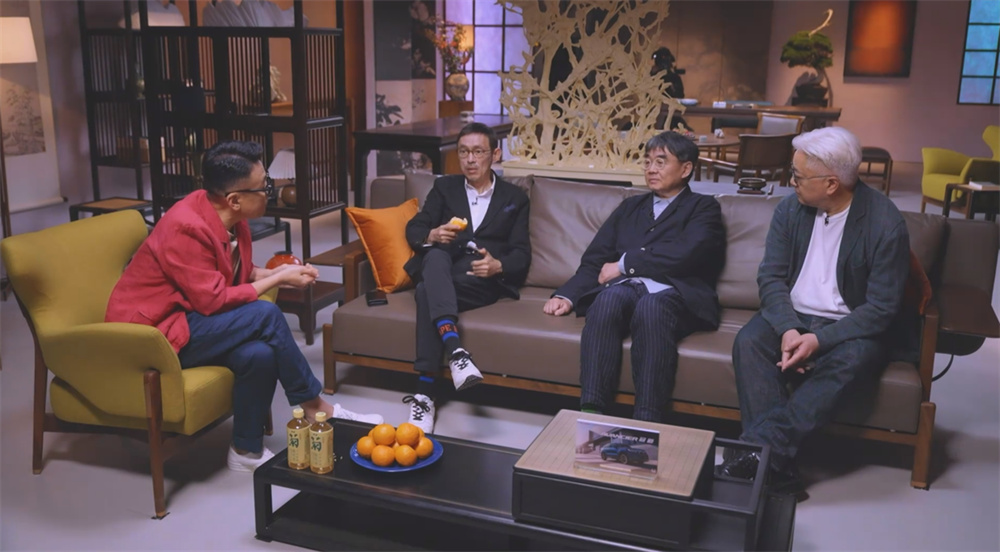
Before the official recording, the guests often chat for a while
As the name suggests, the guests of "Round Table" sit around a round table. The design of the round table symbolizes the equal status of all participants in the discussion. Everyone is an important member of the dialogue, and each guest's personality can be fully displayed, whether it is the rigor of academic masters, the sensibility of artists, or the sharpness of cultural critics. Different personalities and styles can flow freely in an equal and comfortable conversation environment.
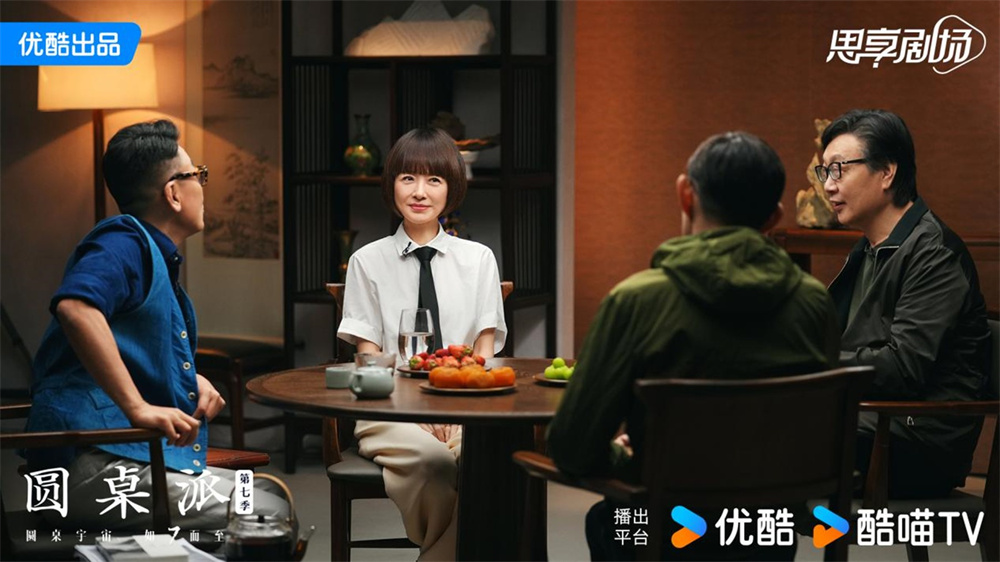
Guests sat around the round table
Roundtable also means "roundness and harmony". The charm of roundtable discussion lies in its ability to accommodate diverse viewpoints. Guests share their own insights and sometimes have different opinions. This is normal. The key is to spark wisdom and achieve the sublimation of ideas through dialogue and collision.
Many talk shows follow preset scripts or processes, but "Round Table" has no scripts or presets and maintains a high degree of flexibility and improvisation, which places high demands on the host.
Dou Wentao plays the role of a guide rather than a leader in the traditional sense. He easily throws out questions or opinions, connecting the guests' discussions like threading a needle. He has profound cultural accomplishment and rich knowledge reserves, and can talk to guests from different fields on the same frequency and talk freely. He has strong adaptability and control over the rhythm of the conversation, and is good at flexibly adjusting the direction of the conversation according to the atmosphere on the spot and the reactions of the guests. When the guests go too far away, he can always find the timing to bring the conversation back to the topic, "the form is scattered but the spirit is not."
"Knowledge"
"Round Table" is a program that broadens people's horizons. The program selects a wide range of topics, covering culture, art, history, technology, society, psychology and other fields. Each topic invites professionals from different fields as guests, including cultural celebrities, media people, scholars, artists, etc.
Whether it is literature, history, science, art or business management, the guests are well-informed and quote classics. They use vivid examples and profound insights to transform complex and profound concepts into easy-to-understand language, allowing the audience to gain new knowledge and broaden their horizons in a relaxed and pleasant atmosphere. The "Dictionary" at the end of each episode will help everyone summarize the "knowledge points" of the episode. This is the first level of "knowledge".
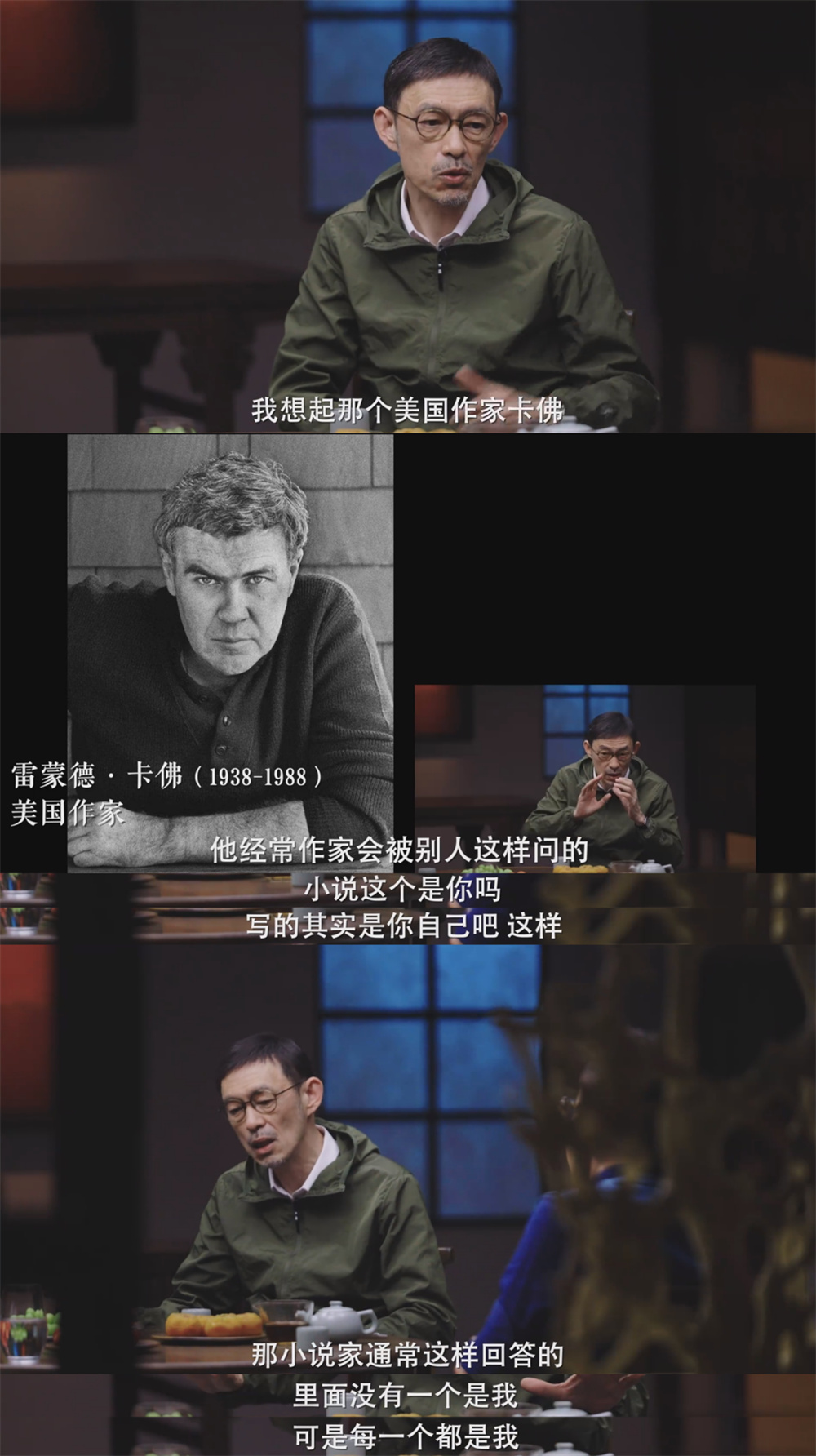
Guests quoted classics
Guests usually have profound attainments or unique insights in their professional fields. They bring not only professional knowledge, but also "first-hand" personal experience and unique observations. These experiences may come from their many years of research practice, their personal experience at the forefront of the industry, or subtle details that can only be seen in a specific situation. They all help to reveal new aspects of the problem and provide new ideas for solving the problem. This is the second level of "knowledge".
For example, in the second episode of "Round Table 7" "Care", we invited Professor Hu Yong, the person involved in the case of "Peking University professor becoming a 24-hour caregiver", to share many details of Alzheimer's care; in the third episode "Reaction", the "iron triangle" of Dou Wentao, Xu Gohui, and Lu Yu reunited to talk about their past experiences of responding to situations during their hosting days; in the fourth episode "Craftsmanship", we invited architectural master Zhang Yonghe and artist Xu Lei to share their craftsmanship from clothing to architecture.
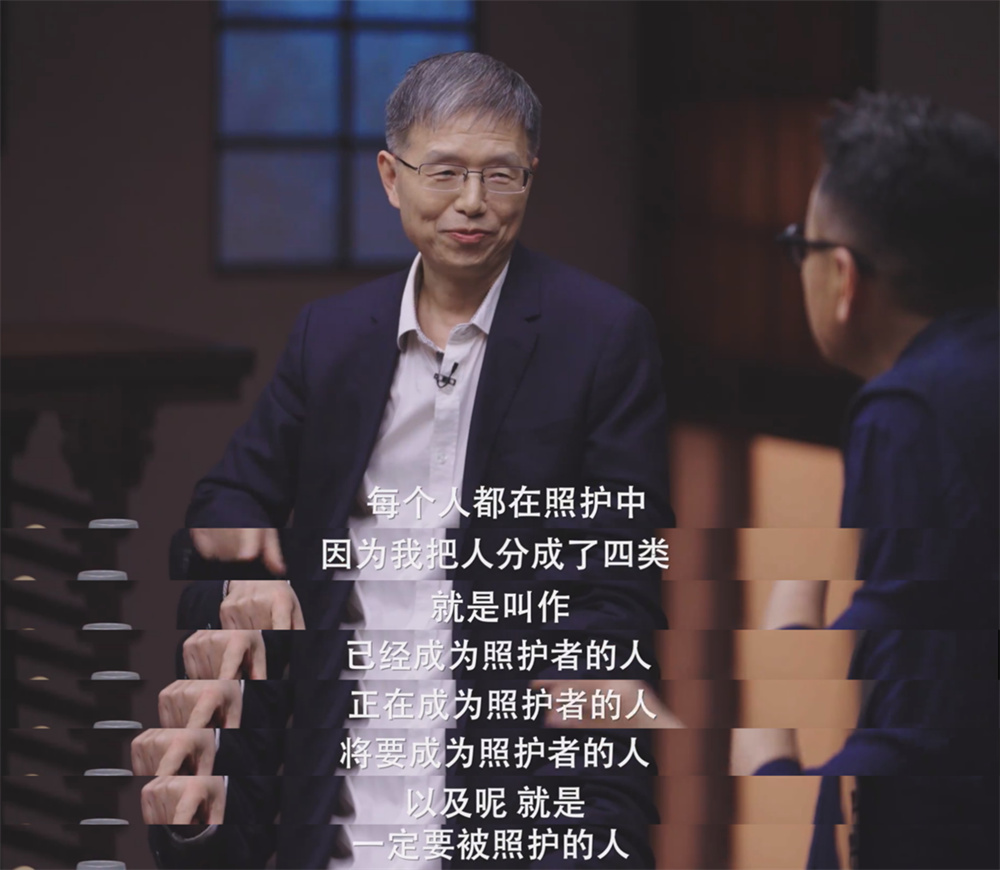
Professor Hu Yong, the person involved in the case of "Peking University professor becomes 24-hour caregiver"
In fact, the more valuable gift brought by the guests of "Round Table" is their deep reflection and understanding of human nature, society, culture and history after years of hard work in their respective fields, showing the audience a broader "knowledge" - profound insights into life and philosophy of life. This is the third level of "knowledge".
In the first episode of "Old Friends", the topic of aging was discussed. In fact, many people are afraid of others saying that they have grown old, but Lu Yu has a different view. She said, "Old and young are not advantages or disadvantages, but characteristics, objective facts. If you state the facts, then you have grown old, but behind the old age, I still think you are more elegant than before." Compared with the aging of appearance, the aging of a person's mental state and mind is what we should pay attention to.
The third episode, "Reaction", talks about people's adaptability, how to deal with everything in an emergency with ease, and even make themselves look very "smart". But Xu Gohui has a different view, "I have come to realize more and more over the years that you must not always be clever in order to adapt... It is your inner heart and mentality behind it, which are clearly seen by others. You are capable and smart, but there are many people smarter than you, so you should be honest, frank and kind. In fact, this is the best magic weapon our ancestors taught us to cope with all kinds of changes with the same attitude". Sincerity is the best response, and the seemingly simple viewpoint is the most transparent.
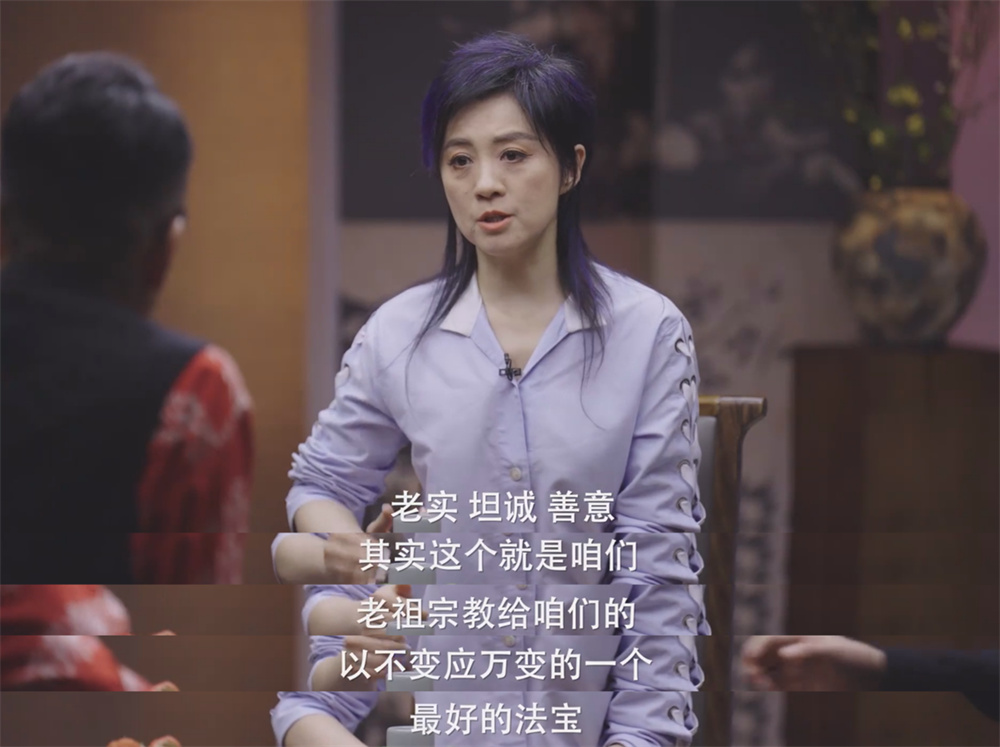
Sincerity is the best response
The theme of the fourth episode is "Craftsmanship". The guests talked about their special dressing experiences. Ma Jiahui shared his experience of trying on women's clothes at home when he was young. Ma Jiahui said that the feeling was very strange. It was not the feeling of cross-dressing, but "it seemed that I suddenly understood that as a woman, you felt that when you put on women's clothes", whether it was women's high heels or women's underwear, "the whole person was tied up", "We understand that women wear clothes from childhood to adulthood, and clothes will create your entire psychological state, and you may be regulated everywhere"... Such "knowledge" is delicate and valuable.
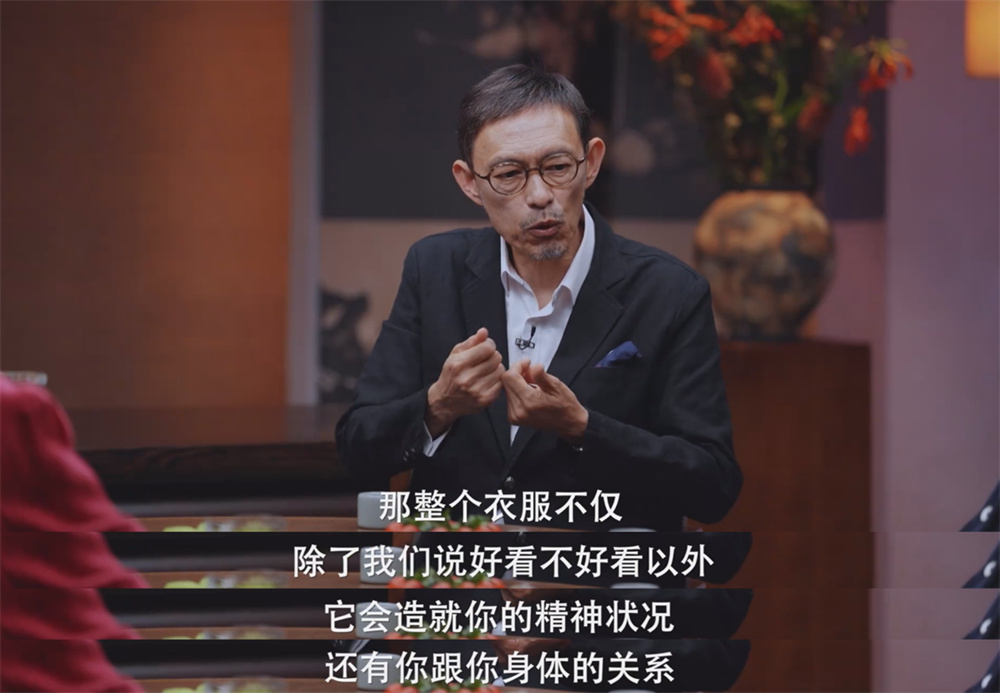
Ma Jiahui's thoughts on women's dressing experience
“Openness”
The "pi" in "Round Table" is also π, which refers to the vastness of content and the infinite extension of thought. The program does not insist on providing a unified and conclusive answer to the topic of discussion. Each guest shares unique insights from his or her own standpoint and shows the analysis path of multiple dimensions of the problem.
Therefore, although the discussions in the Round Table are free and casual, there are often internal debates on opinions. For example, in the episode of Care, Hu Yong talked about a nursing home director who left a message to oppose him, a university professor, becoming a caregiver. She believed that Peking University professors should focus more on creating more meaningful things and leave care to professionals. This may also represent the views of some people. Hu Yong was quite surprised. He said that the other party was an expert in elderly care, but he also believed from the bottom of his heart that care was a more "low-level" thing and should give way to "higher-level" things.
Who is more right? Everyone has their own job or everyone has their own ambition? We all say such polite words as "caregiving is not a 'low-level' job", but why are most people unwilling to become a caregiver when there are other options? Therefore, to make caregiving a "high-level" job, it is not just verbal recognition, but also to provide this job with tangible material incentives and social recognition.
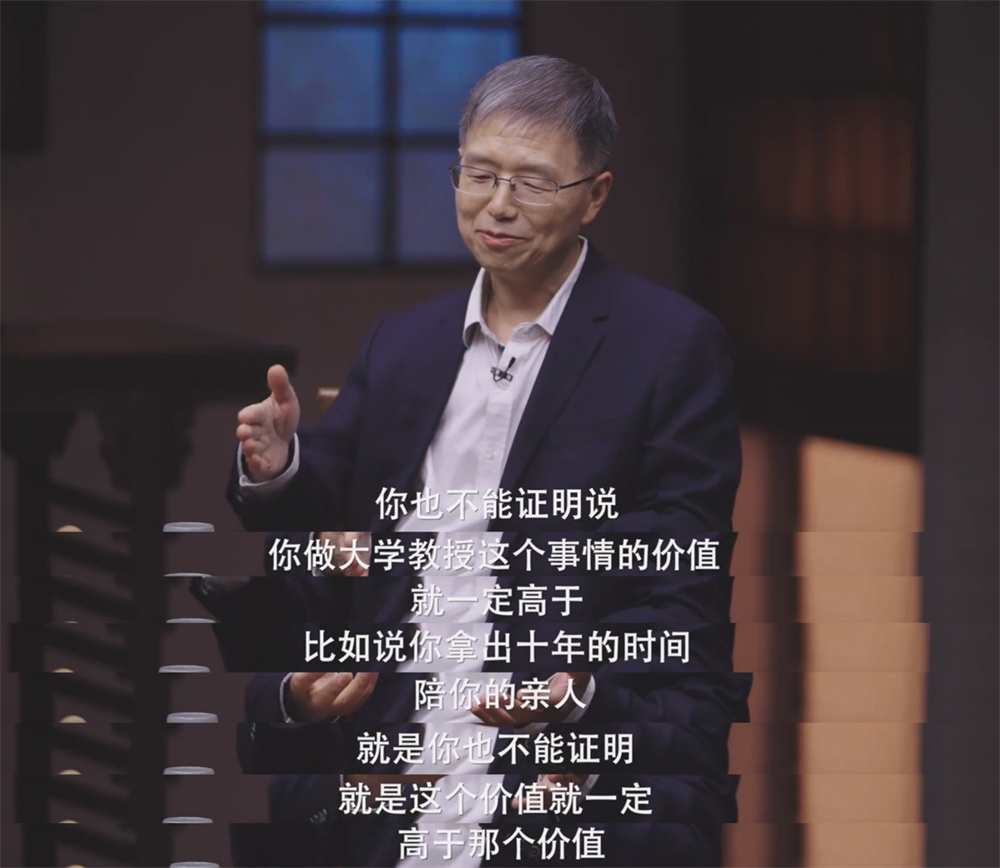
Discussing what is “value”
The fifth episode of "Round Table 7" "Flowers" is also quite interesting. The program was recorded in the "Flowers Study" of Jin Yucheng's old house, and everyone discussed the novel and the TV series "Flowers". Although everyone likes Miss Wang, Dou Wentao and Jin Yucheng both raised a little objection. The Miss Wang in the drama version is so self-reliant and determined that she is unwilling to have men secretly help her. They think this is an adaptation of the drama to cater to the needs of women today. In their view, help is very scarce in the current society, and there is no so-called who helps who and who relies on whom. "The word 'human' is a stroke and a stroke. Who can be independent? We all support each other... Why do people love to emphasize that I am me now?"
Ma Jiahui proposed another view. He said that in the biographies of many successful women, there is often such a plot, "I use my refusal of your help as a force to make me progress." Dou Wentao also thinks this interpretation is very wonderful. In Buddhist terms, it is called "adverse increase of good fortune." So far, the audience has a different and more open understanding of Miss Wang's refusal of Abao's help.
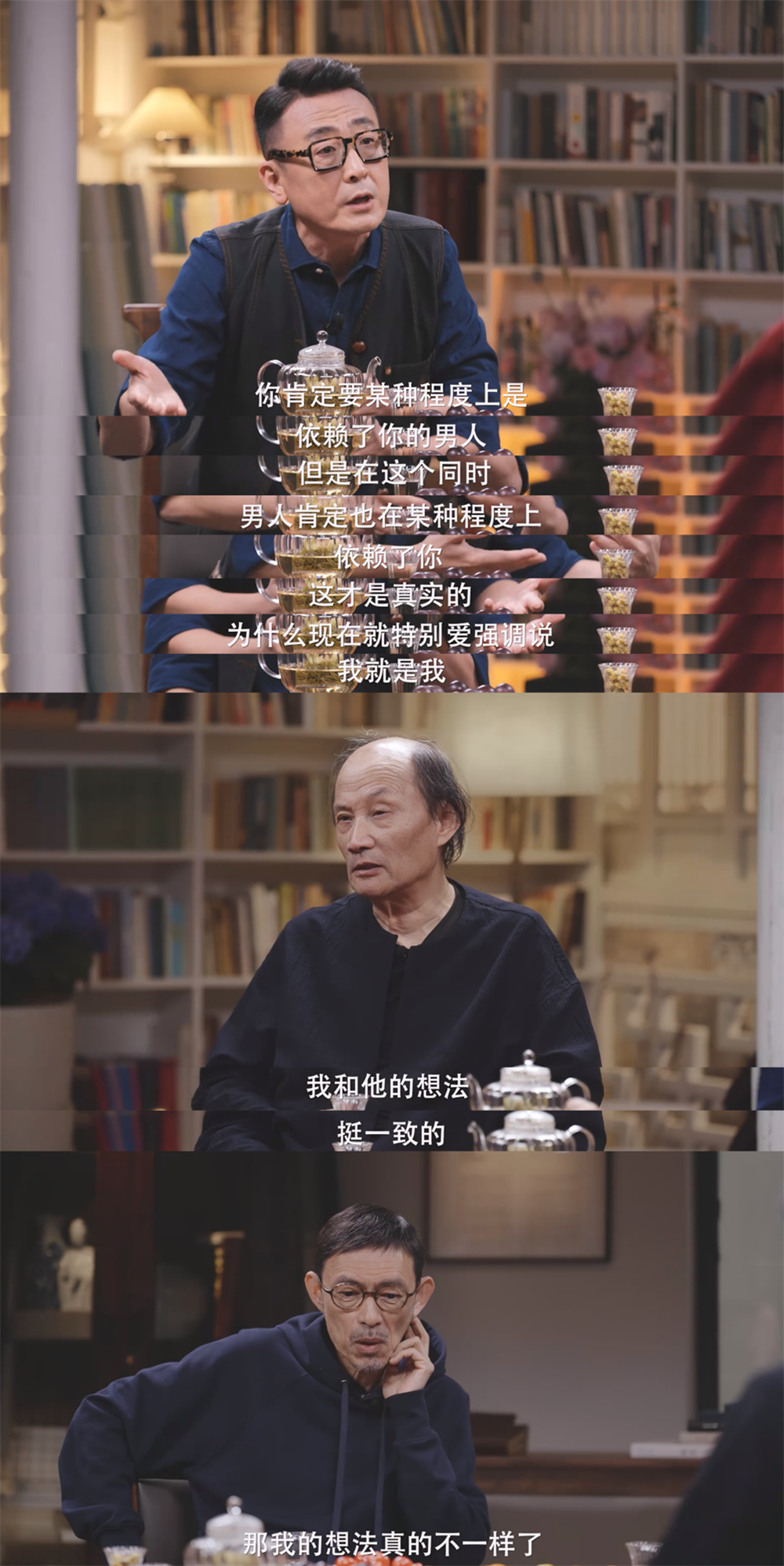
The panelists had different opinions on whether women should refuse help from men to show their independence.
For example, when it comes to "渣男" (bad man) and "渣女" (bad woman), Ma Jiahui believes that such words are "rough" and "obliterate the complex emotions behind a relationship, or several relationships". Will this make us more cautious when we act as moral judges online?
In short, there is no conclusion, and the emphasis is on openness. The "openness" of "Round Table" is very rare in this era. This is an era of algorithms. Almost every app has algorithms. It is easy for people to fall into information cocoons. They are exposed to information that is consistent with their existing views, which leads to rigid thinking and rejection of the collision and exchange of different opinions. This is also an era of excessive self-consciousness. Many viewers are accustomed to looking at the world from a self-centered perspective, so that public opinion is often divided or even torn apart, and they only care about themselves and fight to the death...
In this context, the "open" discussions of "Round Table" can help the audience break out of the inherent thinking framework, broaden the boundaries of cognition, learn to look at problems from multiple angles, and understand the rationality and limitations of different viewpoints; it also promotes the observation and understanding of complex social phenomena and forms a more mature and comprehensive judgment.
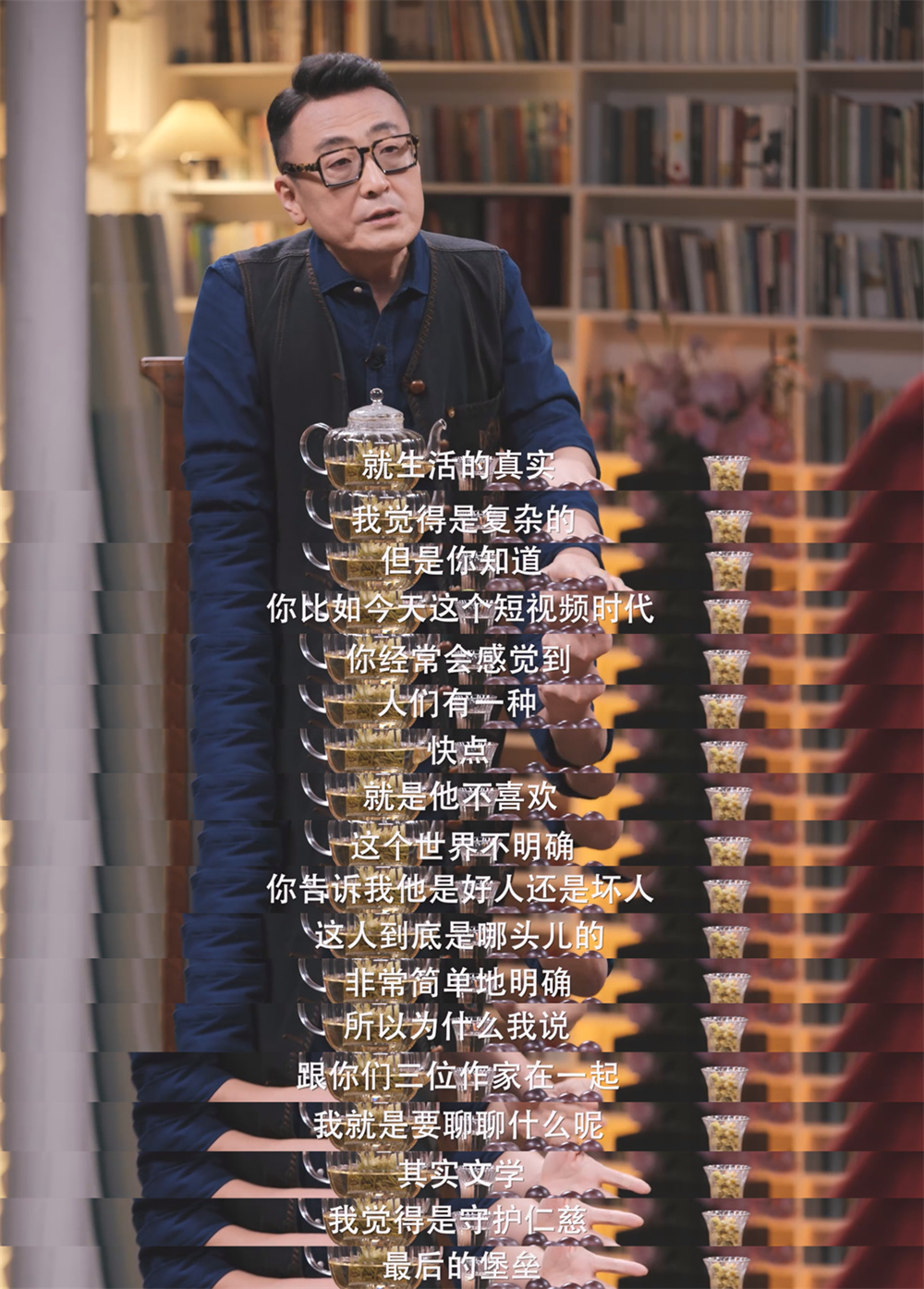
"Round Table" is also a program that "protects kindness"
For a healthy society, an equal, open and inclusive public discourse space is essential. The Round Table is not only a platform for knowledge transfer, but also a public space for promoting communication and dialogue and enhancing mutual understanding in the fragmented era, allowing diverse ideas to converge and merge here, and conveying a rational, inclusive and warm communication atmosphere.
So, season after season, it is still so enjoyable to listen to Dou Wentao chatting with the guests, as if if they keep chatting like this, we would also be willing to listen forever.
